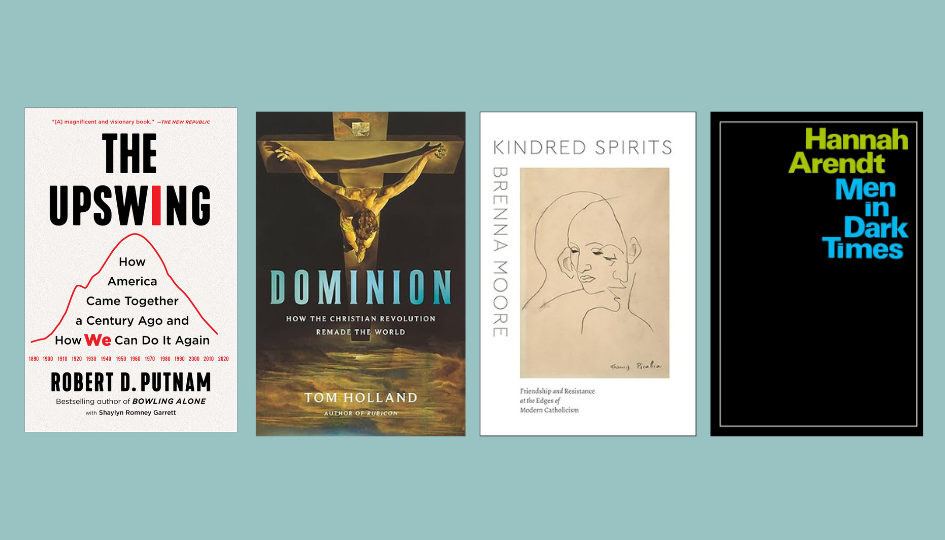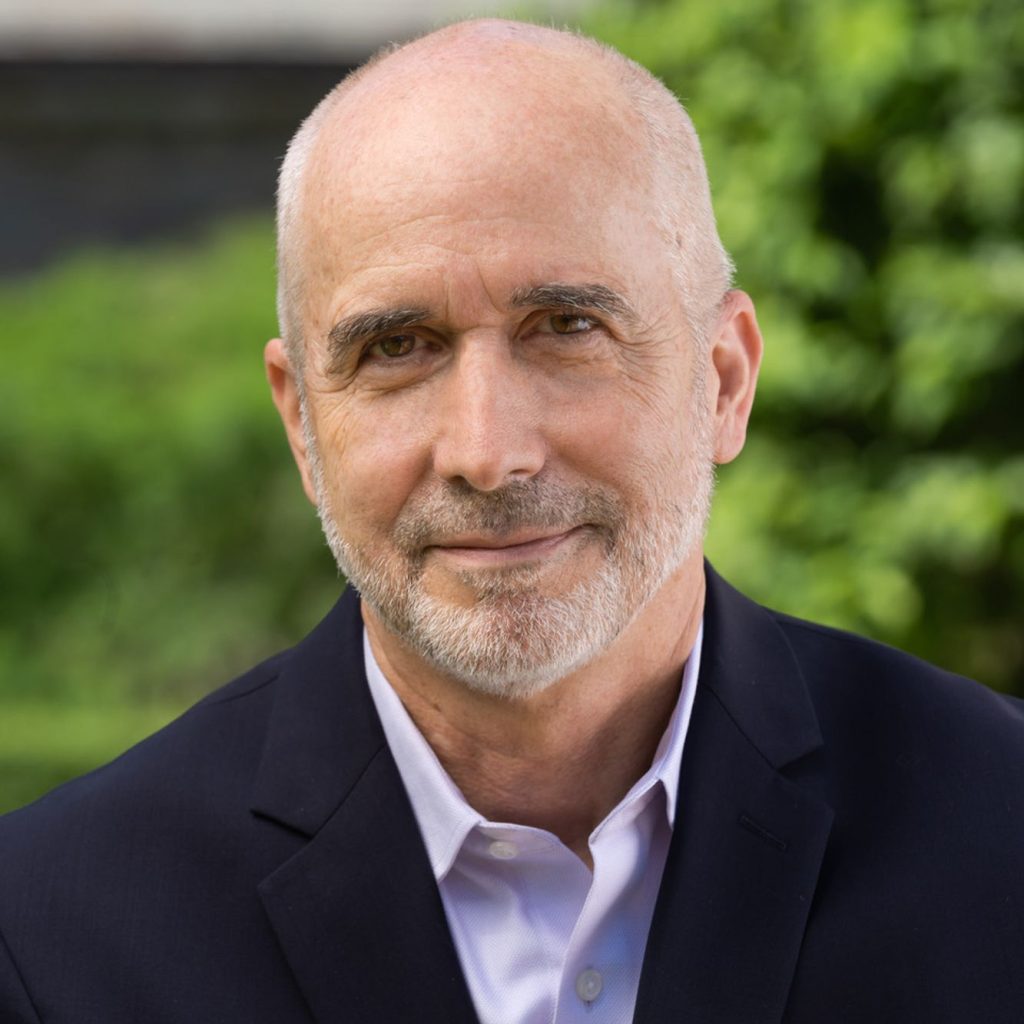David Gibson, director of the Center on Religion and Culture, was watching the 2023 documentary Join or Die last fall when he decided to ask its subject, renowned political scientist Robert Putnam, to deliver the center’s annual Russo lecture on Feb. 13.
The film made Putnam’s groundbreaking work, Bowling Alone, feel more relevant than ever, Gibson said. Originally published in 2000, the book traces America’s waning civic engagement back to our dwindling participation in social activities, from PTA committees to Sunday Mass. Today, Putnam’s work still informs our current moment: The Atlantic’s February cover story, “The Anti-Social Century,” cites his research throughout.
At Fordham, Putnam will be speaking about his most recent book, The Upswing, which offers a hopeful perspective on our polarized political environment and growing income inequality. For our inaugural Fordham 4 interview series, we asked Gibson to name three more books that provide a ray of light in an era of uncertainty.
1. The Upswing: How America Came Together a Century Ago and How We Can Do It Again, by Robert Putnam
This thoroughly researched book examines how the immense gap between rich and poor during the Gilded Age of the 1800s shrank thanks to the reformist policies of the Progressive Era, and how we could repeat history to become a more equitable society again.
“Putnam revives an old story about how we can actually overcome the current plague of social isolation and civic dissolution,” Gibson said. “Dare we hope for hope?”
2. Dominion: How the Christian Revolution Remade the World, by Tom Holland
For anyone who fears that our culture is leaning further and further away from religion—as Gibson does—Holland’s compelling history of Christianity is a hopeful reminder of its eternal relevance.
“If you are a Christian who worries that we are facing nothing but the “melancholy, long, withdrawing roar” (as Matthew Arnold had it) of faith in retreat, then read Tom Holland on Christianity’s remarkable legacy and, perhaps, a vision for our future.” Gibson said. “It’s also a great read.” He notes that “Holland is NOT the Spider-Man guy” but he is part of “The Rest Is History” podcast duo—which is worth checking out, too.
3. Kindred Spirits: Friendship and Resistance at the Edges of Modern Catholicism, by Brenna Moore
Against the backdrop of polarized, interwar Europe in the early to mid-20th century, Theology Department Chair Brenna Moore examines a group of Catholic historians, theologians, poets, and activists whose “spiritual friendship” helped them navigate the era’s social and political challenges.
“I found this work by our colleague in Fordham’s theology department a wonderful, consoling, and informative read—a remarkable combination of scholarship and narrative storytelling that is perfect for our times,” said Gibson.
4. Men in Dark Times, by Hannah Arendt
In this collection of profiles, Arendt spotlights men and women including Rosa Luxemburg, Isak Dinesen, Bertolt Brecht, and Walter Benjamin doing incredible, illuminating work even in the bleakest moments of the early 1900s.
“My favorite (no surprise) is the essay on Pope John XXIII,” said Gibson, a papal expert and author who covered the Vatican and Catholic Church for years as a Religion News Service reporter. “It features the best-ever title: ‘A Christian on St. Peter’s Chair.’”



